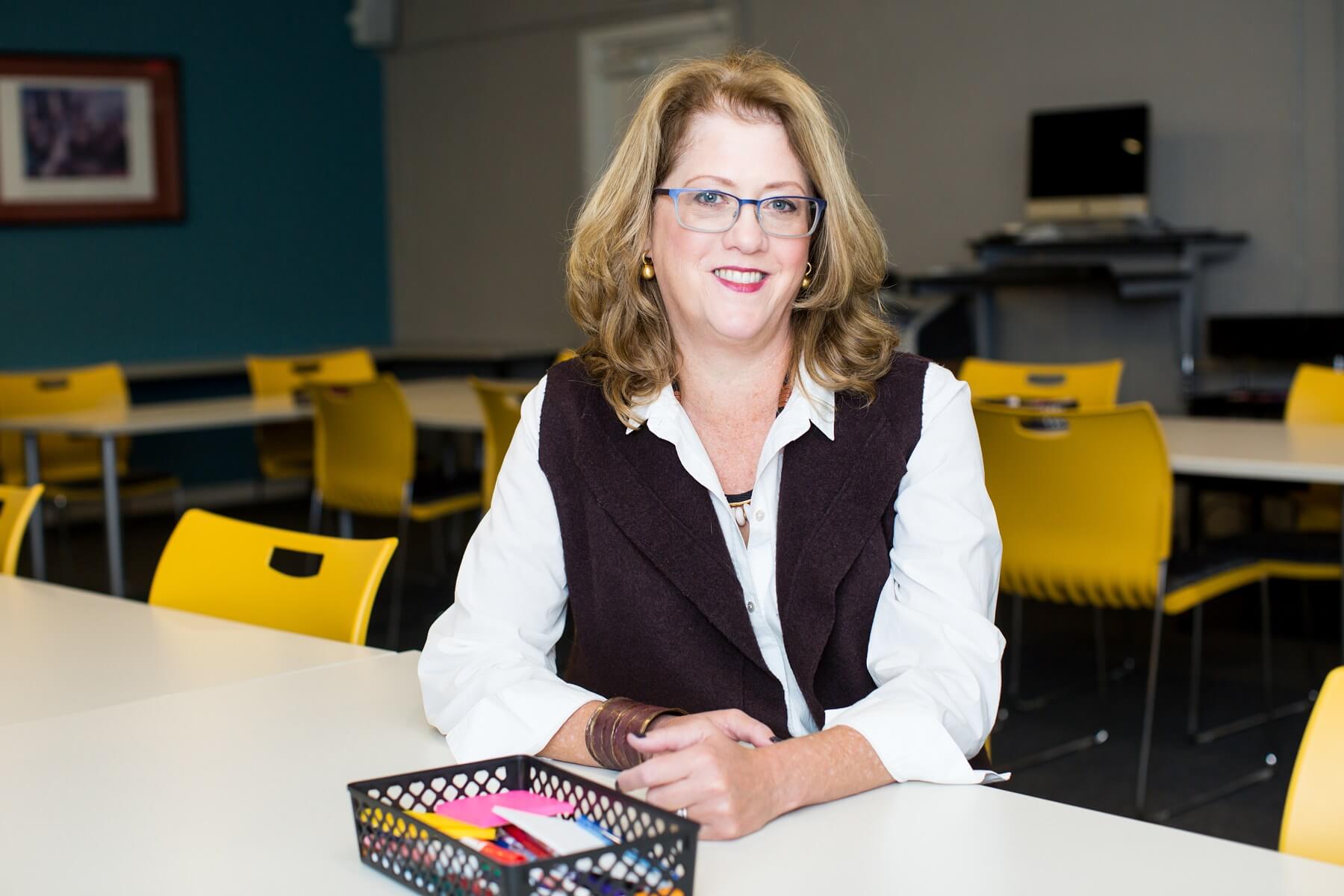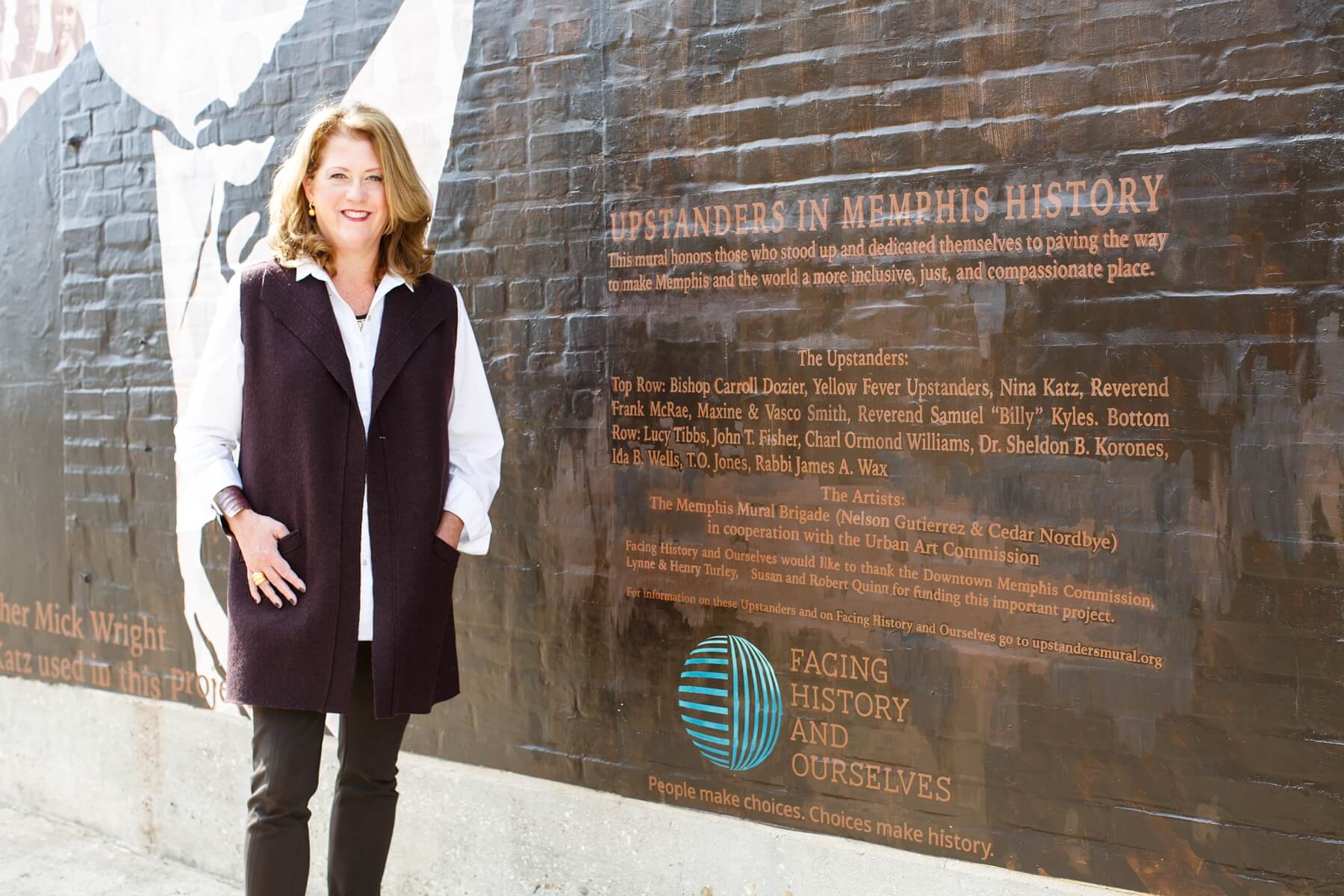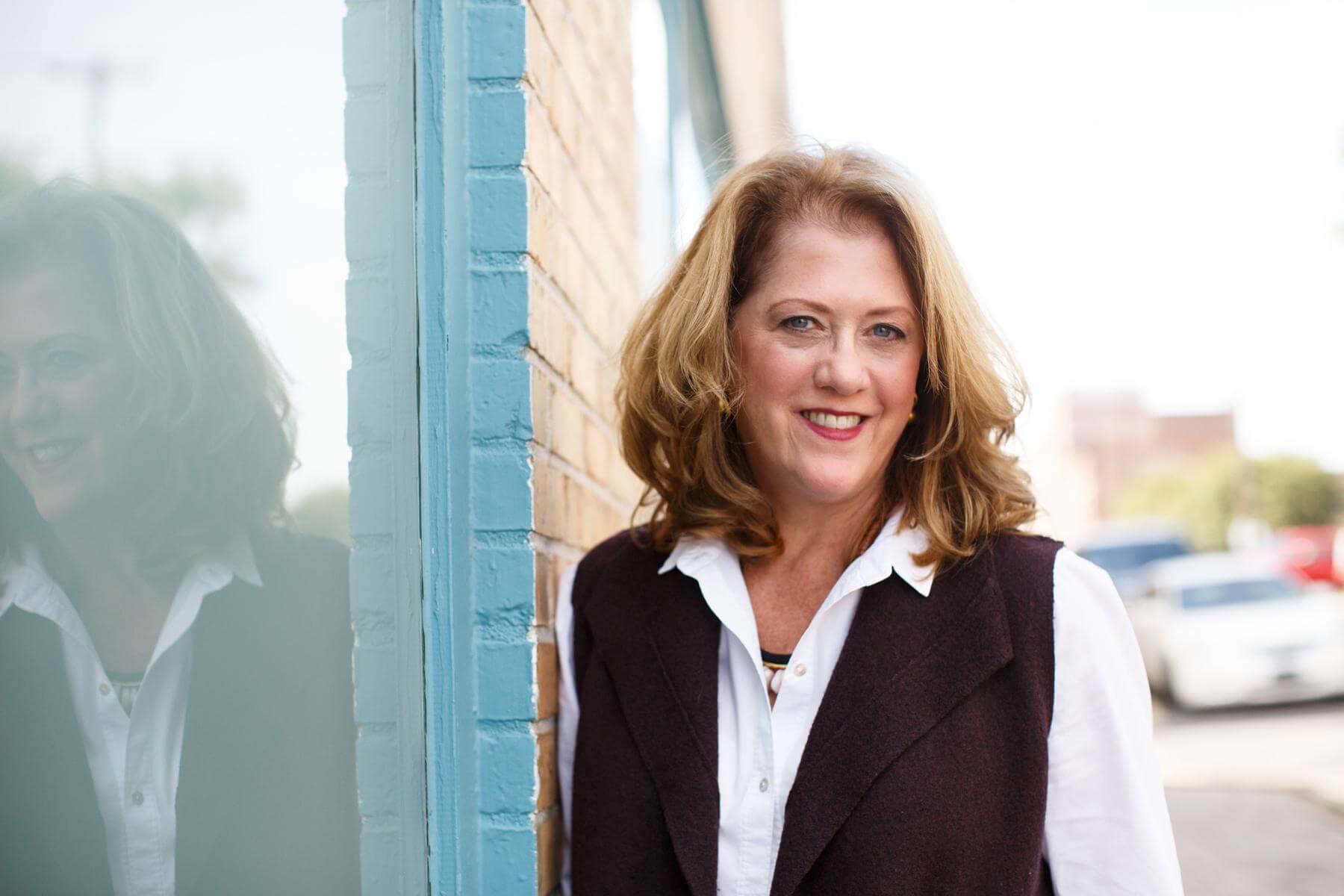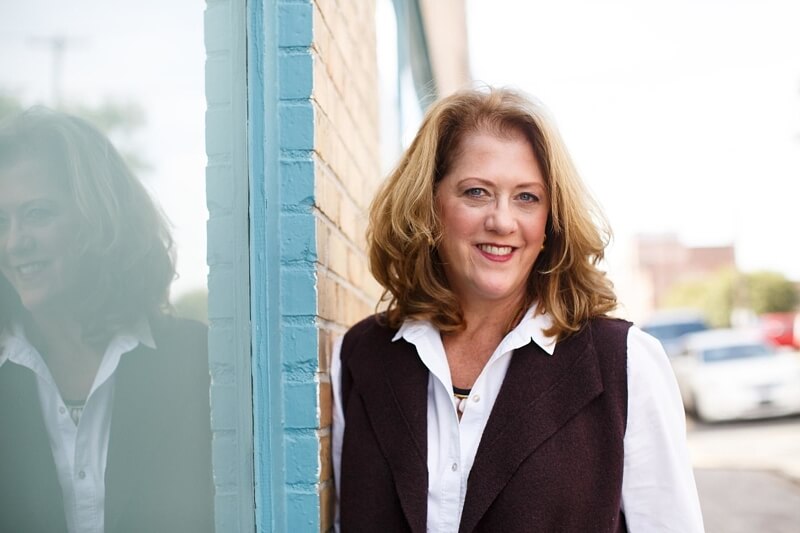Facing History and Ourselves’ global mission has deep Memphis roots. The organization, founded by Memphis native Margot Stern Strom in 1976, trains educators and students to look more closely at historical events to uncover the human decisions behind them. As the only Facing History office in the South, the Memphis chapter has spent 25 years guiding and convening disparate voices through challenging pasts and current events.
After two decades serving the organization in Los Angeles, transplanted Memphian Marti Tippens Murphy was thrilled when the call came to helm the organization in her hometown. We sat down with Marti at the group’s office adjacent to the National Civil Rights Museum as they prepare to celebrate their milestone anniversary at the 2017 Benefit Dinner on October 23rd with keynote speaker Jelani Cobb. Welcome our newest FACE of Memphis!

Where were you born and what was your upbringing like?
My family’s from Tennessee, long time in Nashville. We moved around quite a bit while I was young. We moved to Memphis while I was in the fourth grade, so I consider Memphis my hometown. I went to school here, all the way up through college at Rhodes, and then was one of those kids who wanted to go off and see the world.
What was your journey away from and back to Memphis?
I got as far as the West Coast and ended up living in Los Angeles for about 25 years. For most of that time, working with Facing History. I met my husband in California, and it’s just the two of us. We moved back to Memphis three and a half years ago. My family is still here, so that was really wonderful to be able to reconnect and be back home.

How did you get involved with Facing History and Ourselves?
My education at Immaculate Conception really got me interested in social justice issues. I carried that forward when I majored in international studies at Rhodes. But then I really started thinking about the power of storytelling as it connects to history, and got my master’s in journalism on the West Coast. About that time, I needed a job, and so I just started looking for organizations that I felt could make a difference in the world and stumbled across Facing History. The mission really resonated with me because it spoke to the importance of understanding history through the lens of individuals and the choices that they make.
What was your first role like?
I was a program assistant. My first day was literally “Here’s a screwdriver, put together your desk.” Throughout that time I actually got to work not only based in Los Angeles but as part of the national team on communications, so I was always in communication with the Memphis team, so I knew all of the staff. I kept feeling that tug to come home but didn’t want to leave Facing History, and then when [Memphis chapter founder] Rachel Shankman retired it was just like, okay, here it is. Come back.

How does Facing History and Ourselves participate in today’s Memphis conversation?
We provide that historical understanding that is often missing. We also bring empathy and listening. I was just interviewing a bunch of students who had been taking Facing History last week and asked them, “What do you think Facing History can offer to the Memphis community, and what has it helped prepare you to do?” And one of the things that was such a recurring theme was: I found my voice but I also was able to understand. Just the way that we need to figure out how to talk to one another, work together, is something that we can help people with.
How do students get involved in that training?
Most of our work is with teachers, giving them the tools and the resources. Our foundational resource is Holocaust and Human Behavior, which is looking at the steps that led to the Holocaust, and really giving a framework and a vocabulary around being an upstander, bystander, perpetrator. Another new resource is on the Reconstruction Era and what happened in our country after the Civil War. I think for so many of us, myself included, we didn’t learn that history, and it’s been to our detriment because I think it’s at the root of a lot of misunderstanding and injustice that we still have.

How do you feel personally connected to the organization’s mission?
Bryan Stevenson talks about one of the things we have to do is protect our hope, and for me to come to work every day and do this work and see how thoughtful students can be — when you give them the opportunity, they have the vision for solutions and working together. I just feel incredibly grateful to be able to do this and be able to do it with people who came before me.
How do you feel that Memphis as a community has engaged with the work you’re doing?
It’s been remarkable. The Memphis community is really special in terms of how the organization and the work have been embraced. A lot of the things that become a big part of the organization start here in Memphis.
How can people make the first step to take action at an individual level?
Somebody said to me sometime that an upstander is someone who saw something right in front of them and just started to think about how they could do something about it. It’s thinking about that one thing that you really are passionate about.
What parts of Memphis are you proudest of?
When I came back and someone asked me what was something about Memphis that I just really was struck by, the first thing I said was the sense of conviction or faith. It goes across whatever someone’s faith tradition is. I see people collaborating from different backgrounds and I think that’s a really powerful strength of Memphis.
What do you see as Memphis’ greatest opportunities?
It’s got to be the young people. We’ve got to figure out a way to make sure they have the opportunities to make an impact so they can stay here and help our community thrive.
Who were the role models who influenced how you approached your career?
My mother, just in terms of her disposition of always walking in someone else’s shoes. I think that that has helped me become an empathetic leader. The other one would be from history, and that’s Elizabeth Eckford of the Little Rock Nine. I was just really inspired by that courage, and also that led me to ask all the questions of why, why is she in that situation?

What’s your best advice?
I try to help people not take things too personally. I think that maybe comes with the hard knocks of having been around for awhile, that you learn that you just dust yourself off and be true to yourself. When possible, I try to do that.
Aside from faith, family and friends, what are three things you can’t live without?
I have to be outside, it really feeds me. I love podcasts, and I love being in the kitchen, just chopping vegetables. To me that’s really meditative.
Thank you to Marti Tippens Murphy for shedding light on this wonderful organization. Thank you to Micki Martin for today’s beautiful photos of Marti.
**********
Meet more amazing Memphis women in our FACES archives. Click here, and prepare to be inspired!




















